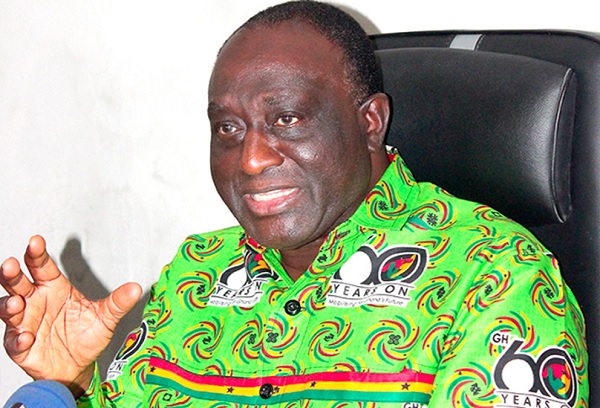
Ghana rising: Energising indigenous business participation
A quick scan through the 17th edition of the Ghana Club 100 companies shows that just a handful indigenous Ghanaian companies made it there.
The league is dominated by multinational companies in the telecommunication, mining, oil and gas, and financial services sectors.
Advertisement
A few shining examples of real Ghanaian companies also made it to the top 100, and a lot of them were rural banks.
I was quite surprised at the poor showing of agriculture and agribusiness companies.
To have about 60 percent of our folks engaged in farming, and not having any company that processes produce from these farmers among the list of top 100 companies in Ghana, apart from Blue Skies, provides some idea of what the problem with our country and its economy is.
Imagine a situation where companies in the agribusiness value chain were dotted along every step of the process, from planting through harvesting to processing and packaging, and what that would mean for the youth unemployment scourge and our never ending foreign exchange woes.
While it could be argued that governments do not have to be seen actively providing support to companies to make them competitive, it is also true that without a strategy by government to grow its local industries, we will continue to be consumers of other people’s products and keep creating jobs in other countries.
A recently published report by Konfidants, a diversified international advisory firm, revealed that only 18 per cent of consumable goods sold in Ghana’s leading supermarkets originate from the country.
For a country that launched a ‘Buy made in Ghana’ campaign some years ago and currently in the middle of a ‘See Ghana, Eat Ghana, Wear Ghana’ project, one would have expected better results from any study to ascertain shelf space accorded made in
Ghana products in malls in the country.
But commanding large shelf space does not happen by chance.
Deliberate policy
A deliberate government policy is what is needed to complement the efforts of individual local companies and provide them some incentives to push the Ghanaian industrialisation agenda. The policy must first seek to re-orient the Ghanaian mindset about its own produce.
The thinking that anything Ghanaian is inferior, and everything foreign is better must be dealt a deathblow, albeit subtly.
A mental re-wiring leading to attitudinal change is inevitable in any quest to project made in Ghana goods.
This should be made to reflect in our speech, taste, opinion and expenditure. If we do not talk up and spend on made in Ghana goods, we cannot expect others to do so for us.
While it may be true that the quality at the beginning may not be top-notch, we should be willing to have healthy tolerance for them to grow. Is this mediocrity? No, it’s building the Ghanaian business and giving the local industry confidence!
Quality
As we endeavour to do this for our local businesses, they must also undertake to improve upon their quality and be willing to take on the world. In no time, they must be ready to compete very favourably with world class businesses in their line of trade.
The policy must permeate every facet of society and draw useful linkages and connections to all aspects of our lives; school curricula must be couched to instill this made-in-Ghana consciousness in our kids right from their young age. Media and creative arts must also be affected.
Media and education, though subliminal, have enormous power to change mindsets to where the principal wants it. Our movie industry must be encouraged through policy to produce content relevant to this agenda.
I once asked a young lady in Seoul why almost every person I came across owned a Samsung phone and not an iPhone of the same generation, though the former was slightly more expensive. Her answer surprised me.
She said iPhone was equally popular in Korea but because Samsung was Korean, they liked it and had to buy it. The story is not different for home appliances and cars they use. Policymakers at a point in that country’s history decided to give a voice to their own, and the result is what we see today.
Citi FM/TV’s ‘made in Ghana’ campaign
It is therefore welcome news that the Citi FM and Citi TV team has embarked on a mission to ensure made in Ghana products occupy more shelf space in our supermarkets and malls.
The stations’ recent ‘This is Ghana’ exhibition was a real eye-opener, as over 70 young Ghanaian entrepreneurs dealing in a variety of products came to showcase their wares.
This certainly is the reason behind Citi FM/TV’s next big event called ‘Ghana Rising.’ The charge is obvious, to energise local business participation to help create local entities that can transcend the borders of Ghana.
Today’s event is billed to bring together stakeholders and policymakers, will provoke discussions on four thematic areas, namely: finance, oil & gas, agriculture & agribusiness and green economy to push for a place for local businesses at the centre of national development.
In conclusion, this is perhaps what our country needs at this time to provide some hope and help us anchor our aspirations of taking charge of our own economy by raising local business giants that can compete globally and project the Ghanaian entrepreneurial identity.
The writer is the public relations officer of the Ministry of Health
Writer’s E-mail: [email protected]




